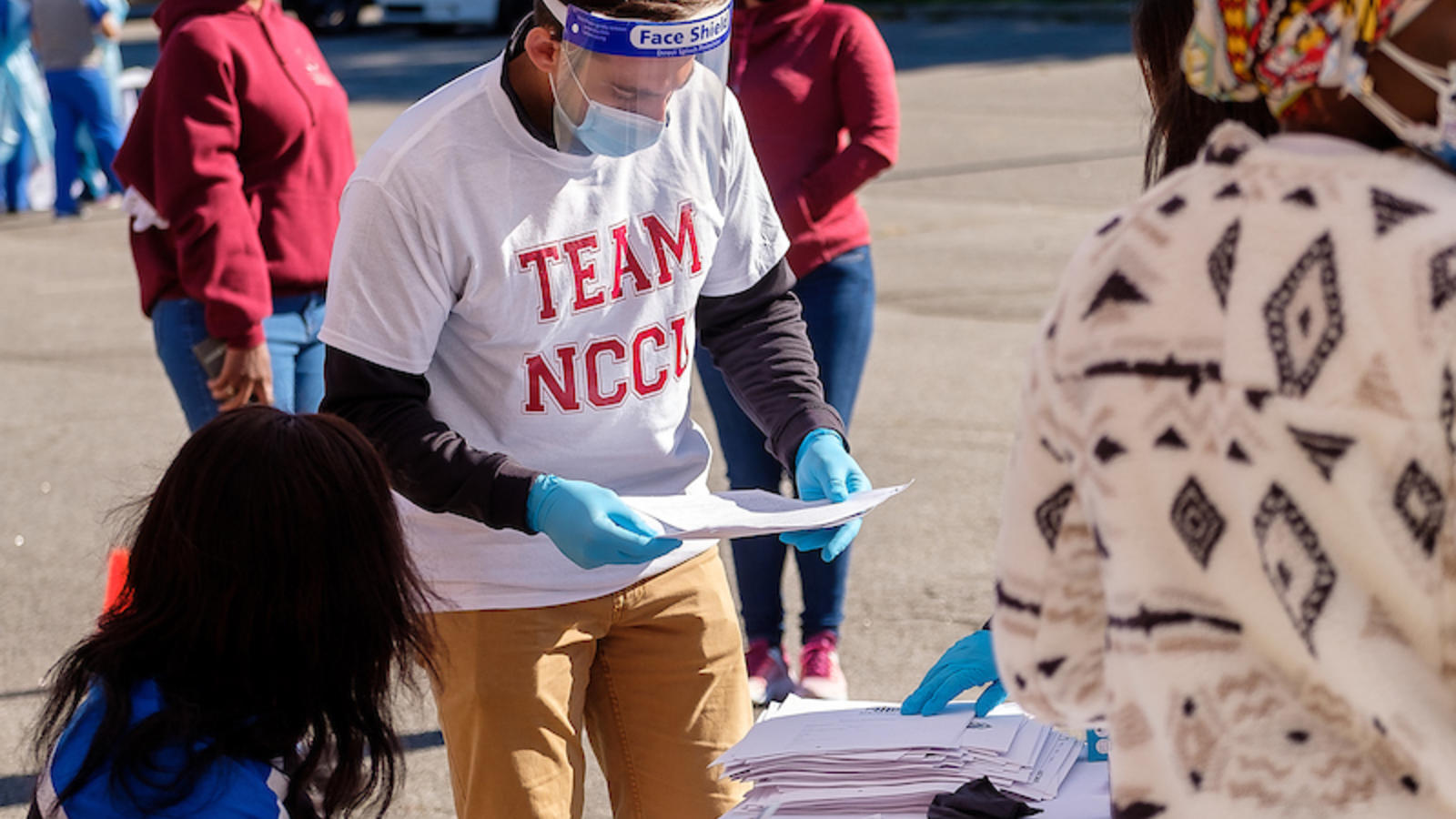North Carolina Central University Advanced Center for COVID-19 Related Disparities (ACCORD) has found widespread hesitancy among segments of the North Carolina population when it comes to the COVID-19 vaccination.
The on-site and in-person surveys, which were carried out before results of the COVID-19 vaccine trials were released, showed that only 26.7% of respondents would get inoculated as soon as the vaccine becomes available to them, 30% said they would not and another 34% said they are not sure what they will do.
An even smaller percent of African American respondents, 22%, indicated they would be receptive to an early COVID-19 vaccination. However, among Latino respondents, 32.5% indicated they were ready to take vaccine.
“These results are significant as our country prepares to roll-out a nationwide COVID-19 vaccination program,” says Deepak Kumar, Ph.D., director of the Julius L. Chambers Biomedical/Biotechnology Research Institute (BBRI) and founder of the ACCORD program. “I hope these results will change after vaccine trials and FDA approval of the vaccine. ACCORD will continue to collect data that can be used for implementing strategies for vaccine acceptance.”
NCCU’s ACCORD team offers drive-up testing sites in underserved communities and is also conducting surveys on attitudes about vaccine hesitancy and the overall impact of the COVID-19 pandemic. The services have been focused in nine N.C. counties: Anson, Cabarrus, Durham, Granville, Halifax, New Hanover, Rowan, Vance and Warren.
ACCORD is a multidisciplinary project supported by the NC Policy Collaboratory at the University of North Carolina at Chapel Hill with funding from the North Carolina Coronavirus Relief Fund established by the North Carolina General Assembly.
Since August 2020, the ACCORD team has provided 49 testing events in these underserved communities, with 2,760 individual tests completed. The team also collected 1,194 surveys at these sites out of which more than 1,000 reported their race and are included in this analysis. In six of the nine counties, the majority of respondents were African American, and in one county nearly all of the test participants were Latino.
Epidemiologist Irene Doherty, Ph.D., who works with ACCORD, said 51% of the participants in the survey expressed concerns about vaccine safety.
When respondents were asked, “Who would you trust to provide information on a COVID-19 vaccine?” nearly 62% replied that their greatest trust is in health providers. Some 46% percent of Latinos and 36% of African Americans who responded said they were not sure if they would immediately take the COVID-19 vaccine.
“We have a lot of work to do to build trust before the mass vaccination program begins,” said William Pilkington, DPA, director of NCCU’s HOPE program, one of BBRI’s community-based health research programs. ACCORD has demonstrated NCCU’s reach into the communities that can be leveraged to engage communities by providing reliable and accurate information is key, he added.
Communities of color and minority-serving organizations need to be involved in providing accurate and complete information about vaccination, said Seronda Robinson, Ph.D., an ACCORD team member and professor and chair of the Department of Public Health Education.
Sean Kimbro, Ph.D., an ACCORD team member and professor of Biological and Biomedical Sciences, explained that individuals from communities of color and rural regions, as well as those who have been underserved medically in the past, are likely to have differing attitudes surrounding vaccine distribution and administration.
ACCORD recently launched a targeted effort to reach out to American Indian communities in North Carolina with help from the University of North Carolina at Pembroke and the Lumbee Tribe of North Carolina.
The data gathered by ACCORD will be shared with the nine counties and stakeholders involved in the program, said Lisa Paulin, Ph.D., a professor of Mass Communication who is assisting the team.
“We are listening to people in communities where we are serving and providing them with accurate information,” Paulin said. “There is a lot of confusion and misinformation circulating.”
ACCORD is developing strategies to provide accurate and reliable information to North Carolinians through its network of community leaders and health partners.
